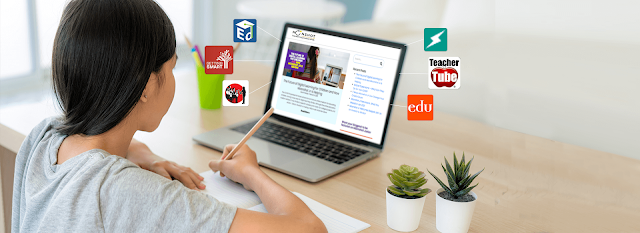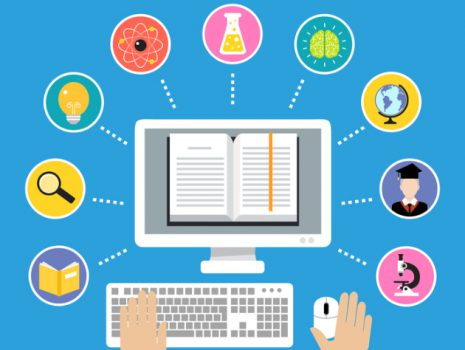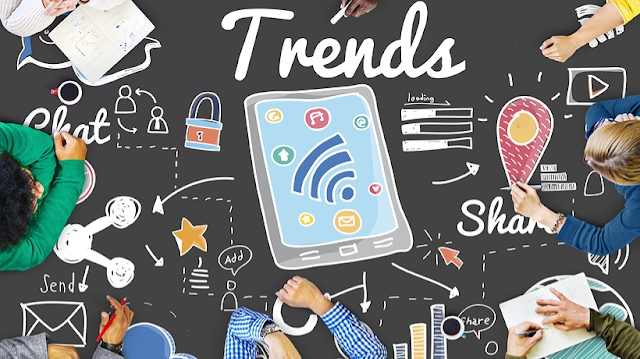Blog On Education System - New Resource
Education is crucial in shaping individuals and societies. It is a lifetime process that allows people to grow in terms of their abilities, knowledge, and character. In this article, we will look at the importance of education, its benefits, various types of education, global education systems, educational challenges, the role of teachers, educational trends and innovations, the significance of lifelong learning, the link between education and career opportunities, the impact of technology, parental involvement, and the future of education.
(toc)
The Best Education Blogs You Should Follow
Education is a cornerstone of human development and progress. It provides individuals with the necessary tools to navigate through life, contribute to their communities, and unlock their full potential. Education not only imparts knowledge but also helps individuals develop critical thinking, problem-solving, and communication skills.
 |
| Best Education Blogs |
Benefits of Education
Education is one of the most important investments a country can make in its future. GPE supports lower-income countries to ensure that every child receives a quality education.
Education is a powerful agent of change, and improves health and livelihoods, contributes to social stability and drives long-term economic growth. Education is also essential to the success of every one of the 17 sustainable development goals.
GPE helps partner countries transform their education systems to ensure that every girl and boy can get the quality education they need to unlock their full potential and contribute to building a better world.
- Personal development
Education fosters personal growth by enabling individuals to explore their interests, talents, and passions. It cultivates curiosity, creativity, and a thirst for knowledge. Through education, individuals gain self-confidence, a sense of identity, and the ability to make informed decisions.
- Professional growth
Education is instrumental in preparing individuals for the workforce. It equips them with the skills and qualifications needed to pursue their desired careers. A well-educated workforce contributes to economic growth, innovation, and competitiveness in the global marketplace.
- Social and cultural enrichment
Education promotes social cohesion and cultural understanding. It exposes individuals to diverse perspectives, experiences, and traditions, fostering tolerance, empathy, and respect for others. Education also plays a crucial role in preserving and transmitting cultural heritage from one generation to the next.
 |
| Education promotes social |
Types of Education
Education goes beyond what takes places within the four walls of the classroom. A child gets the education from his experiences outside the school as well as from those within on the basis of these factors. There are three main types of education, namely, Formal, Informal and Non-formal. Each of these types is discussed below.
- Formal education
Formal education refers to structured learning that takes place within educational institutions such as schools, colleges, and universities. It follows a prescribed curriculum and leads to recognized qualifications. Formal education provides a foundation of knowledge and skills necessary for further academic or professional pursuits.
- Informal education
Informal education encompasses learning experiences that occur outside the formal educational setting. It includes activities such as self-directed learning, reading, attending workshops, and participating in community programs. Informal education complements formal education by providing opportunities for lifelong learning and personal enrichment.
- Online education
Online education, also known as e-learning, has gained significant popularity in recent years. It utilizes technology to deliver educational content and instruction through digital platforms. Online education offers flexibility, convenience, and accessibility, allowing individuals to learn at their own pace and from anywhere in the world. It has opened up new possibilities for individuals who may not have access to traditional educational institutions.
Education Systems around the World
Education systems vary significantly across countries and regions. Each system has its own set of educational policies, practices, and curricula. Contrasting educational systems can provide valuable insights into different approaches to teaching and learning. Understanding these variations can help identify areas for improvement and promote collaboration in the field of education.
 |
| Education systems vary significantly across countries and regions |
Challenges in Education
Despite the widespread recognition of the importance of education, several challenges persist in ensuring equitable access to quality education for all. Some of the key challenges include:
- Access to quality education
Many individuals, particularly those in disadvantaged communities or developing countries, face barriers to accessing quality education. Factors such as poverty, limited infrastructure, and lack of resources can hinder educational opportunities.
- Educational inequality
Educational inequality refers to disparities in educational outcomes based on factors such as socioeconomic status, gender, ethnicity, and geographic location. Addressing educational inequality is crucial for creating a fair and inclusive society.
- Technological advancements
Technological advancements have revolutionized the way we live and work, and education is no exception. However, integrating technology into education poses its own set of challenges. Ensuring equal access to technology, training educators in technology use, and addressing concerns regarding screen time and online safety are important considerations.
The Role of Teachers in Education
Teachers play a vital role in shaping the educational experience of students. They not only impart knowledge but also inspire, guide, and motivate learners. The impact of teachers extends beyond the classroom, influencing students' academic achievements, personal development, and career choices. Building strong teacher-student relationships fosters a positive and engaging learning environment.
Educational Trends and Innovations
As education continues to evolve, various trends and innovations are transforming the learning landscape. Some notable trends include:
- Blended learning
Blended learning combines traditional face-to-face instruction with online learning elements. It offers the benefits of both physical and virtual learning environments, providing flexibility, personalized learning experiences, and opportunities for collaboration.
- Personalized learning
Personalized learning tailors educational content, pace, and instructional methods to meet the unique needs and interests of individual learners. It recognizes that each student learns differently and encourages self-directed learning, critical thinking, and problem-solving skills.
- Gamification in education
Gamification incorporates game elements and mechanics into educational activities to enhance engagement, motivation, and learning outcomes. By making learning interactive and enjoyable, gamification promotes active participation and knowledge retention.
Importance of Lifelong Learning
Education is not limited to a specific phase of life. Lifelong learning emphasizes the continuous acquisition of knowledge, skills, and competencies throughout one's lifetime. It enables individuals to adapt to a rapidly changing world, embrace new opportunities, and remain intellectually and professionally engaged.
 |
| Educational Trends and Innovations |
Education and Career Opportunities
Education plays a crucial role in unlocking career opportunities. Higher levels of education are often associated with increased job prospects, higher earning potential, and career advancement. However, it is important to choose an educational path that aligns with one's interests, strengths, and career goals.
Education and Technology
The integration of technology in education has revolutionized teaching and learning practices. Technology has the potential to enhance student engagement, facilitate personalized learning, and provide access to a vast array of educational resources. However, it is essential to address challenges such as the digital divide, ensuring equitable access to technology, and promoting responsible and ethical technology use.
Parental Involvement in Education
Parental involvement is crucial for a child's educational success. When parents actively participate in their child's education, it creates a collaborative learning environment
. Parents can support their child's learning, reinforce positive behaviors, and establish a strong foundation for academic achievement.
The Future of Education
The future of education holds exciting possibilities and challenges. Evolving education systems are likely to incorporate emerging technologies such as artificial intelligence, virtual reality, and augmented reality. These technologies have the potential to revolutionize teaching methods, personalized learning experiences, and global collaboration in education.
Education is a powerful catalyst for personal growth, societal development, and economic progress. It empowers individuals with knowledge, skills, and opportunities to shape their lives and contribute to the betterment of society. As we navigate the complexities of the modern world, it is crucial to recognize the importance of education, embrace lifelong learning, and adapt to the evolving educational landscape.
FAQs
-
Why is education important?
- Education is important because it equips individuals with the necessary skills, knowledge, and opportunities for personal and professional growth. It empowers individuals to lead fulfilling lives and make positive contributions to society.
-
What are the benefits of online education?
- Online education offers flexibility, convenience, and accessibility. It allows individuals to learn at their own pace, from anywhere in the world, and acquire valuable skills without the constraints of traditional classroom settings.
-
How can technology enhance education?
- Technology can enhance education by facilitating personalized learning, providing access to a wide range of educational resources, promoting collaboration and communication, and preparing students for a digital future.
-
How does parental involvement impact education?
- Parental involvement positively influences a child's educational success. When parents actively participate in their child's education, it creates a supportive and nurturing learning environment, leading to improved academic performance and holistic development.
-
What does the future of education look like?
- The future of education is likely to be characterized by the integration of emerging technologies, personalized learning experiences, and global collaboration. Artificial intelligence, virtual reality, and augmented reality are expected to play a significant role in transforming education.

